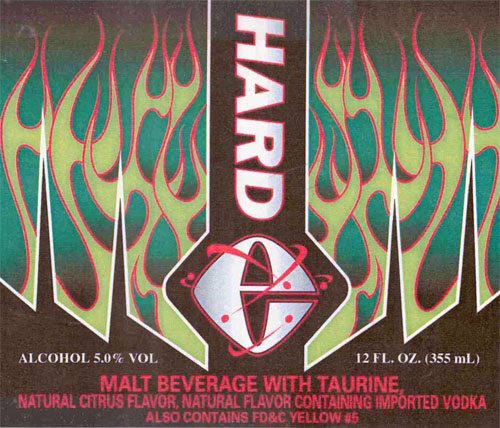
Taurine has been widely used in alcohol beverages for about ten years. One of the early approvals is Hard E Malt Beverage with Taurine, as above. Another early example is Sparks with Caffeine, Taurine, Guarana and Ginseng, from a few months later.
Taurine showed up in TTB/ATF products around 2001, a few years after Red Bull hit the US. Red Bull famously contains taurine as well as caffeine and B vitamins. Some, like CSPI, have said taurine is of dubious legitimacy in food, but this article points out that Red Bull sells the beverage, with taurine, in well over 130 countries. The US of course is among those countries and there is no big sign of FDA concern. France had banned Red Bull with taurine for many years but began allowing it in April of 2008. On this occasion, the company said:
Last year alone, over three and a half billion cans and bottles of Red Bull energy drink were consumed in over 143 countries across the world and no one anywhere has ever shown any link between [the product] and harmful effects. Red Bull could only have such global sales because health authorities across the world have concluded that [it] is safe to consume.
The term is derived from “taurus,” Latin for bull, because it was initially found in ox bile. It occurs naturally and widely in meat and seafood. There is not much evidence that it’s good for you or bad (for example, it has little to no stimulant effects).
Hard E is also a rare example of a malt beverage with vodka on the label.



Leave a Reply